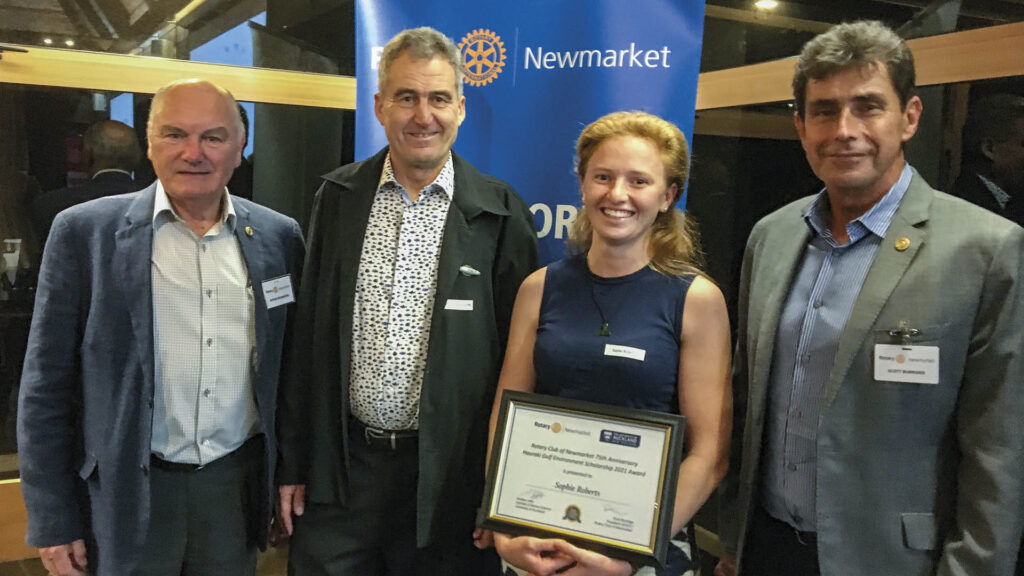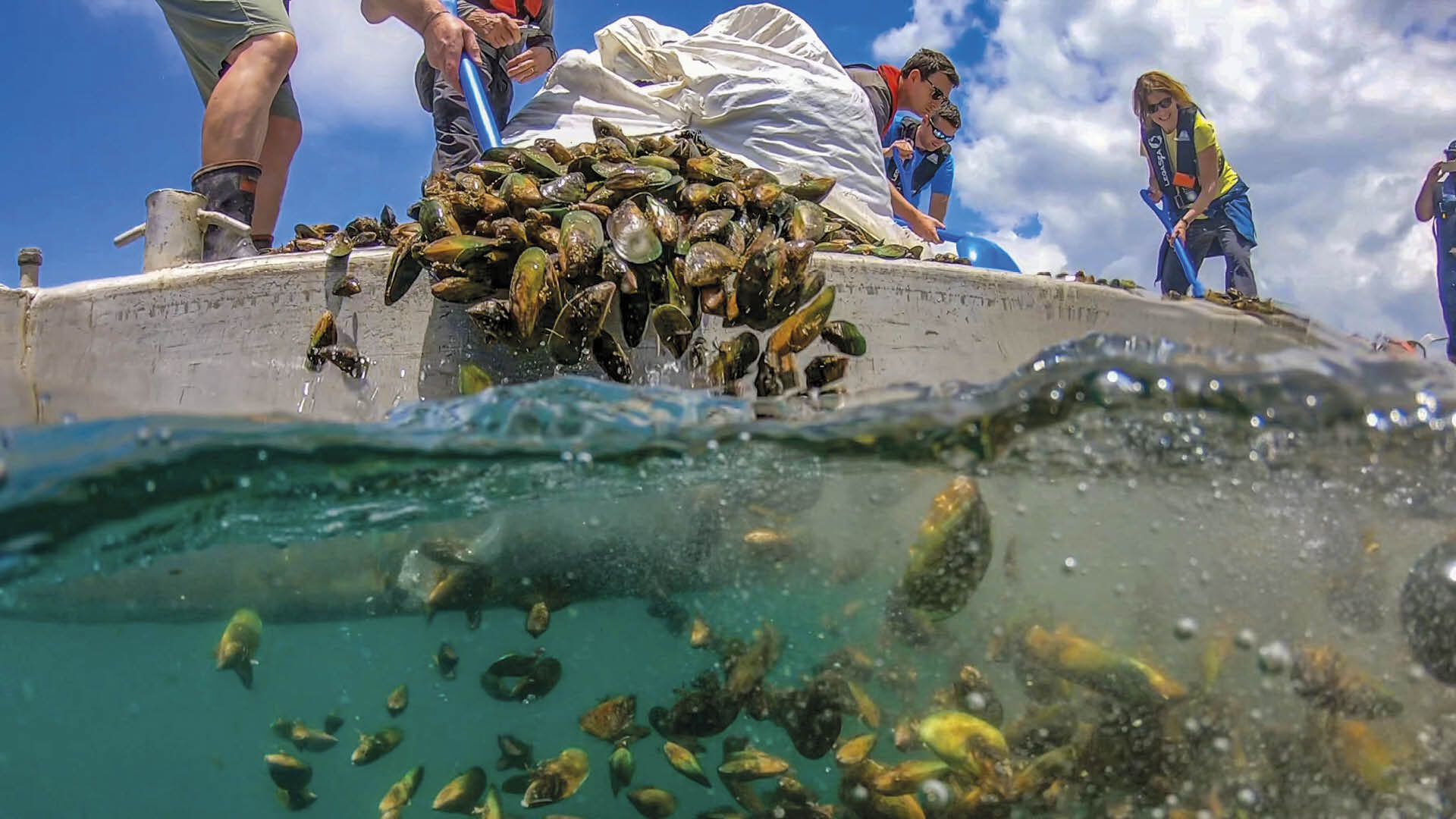The Rotary Club of Newmarket’s commitment to supporting the environment continues with a new university scholarship.
Rotary International Past President Paulo Costa’s Preserve Planet Earth (PPE) Program, established during his term in 1990, was the inspiration for the Rotary Club of Newmarket, NZ, to form an environment committee and undertake a reforestation project on Motutapu Island in the Hauraki Gulf.
The long-term project, partnering with the island’s Restoration Trust, has been a great success, with threatened native birds such as kiwi and takahe now flourishing on the island.
The Hauraki Gulf Marine Park covers an area of more than 1.2 million hectares. There are more than 50 islands within the park, including Motutapu. The marine park lies on the east coast of the Auckland and Waikato regions, and includes the Waitemata Harbour, Firth of Thames, and eastern coastline of the Coromandel Peninsula.

In 1991, the club was allocated an area in Mullet Bay on Motutapu for the native forest restoration. Weeding, pest eradication and planting were the main tasks. The club’s involvement with the island flourished, with projects such as the development of the Rotary Centennial Walking Track, restoration of the Red Barn and the Reid Homestead. In addition, the club has regular working bees at the island’s outdoor education camp, which enables children to gain confidence in the outdoors and hosts around 5000 children every year.
Supporting the Environment, the recently added pillar of Rotary International, has therefore been part of the Rotary Club of Newmarket’s DNA for more than 30 years.
To mark the club’s 75th anniversary, Newmarket has partnered with the University of Auckland to fund a postgraduate research project – the Hauraki Gulf Environment Scholarship.
“We have a long-standing partnership with the University of Auckland with our very successful Oncology Award with the medical school; the Maori and Pacific Islands Top Student Award, and soon to be announced Heart Research Award,” Club President Scott Burridge said.
The club is a member of the University’s Sir Douglas Robb Society for donations of $100,000 to $1 million; their support for various awards over the past 20 years would be approaching half a million dollars.
“The club has had an environment award for a number of years, but partnering with the university will ensure a sustainable pipeline of outstanding young researchers to work on projects that will enhance our local marine environment,” Scott said.
Sophie Roberts is the inaugural winner of the 75th Anniversary Hauraki Gulf Environment Scholarship, and she was introduced to club members and partners at a recent club meeting. Sophie is a doctoral student, supervised by Professor of Marine Science Andrew Jeffs. Sophie’s research is on mussel reef restoration in the Hauraki Gulf, and will involve community, schools and Iwi groups to monitor and report restoration efforts.
“We were impressed with Sophie’s passion for the Hauraki Gulf, the quality of her presentation, and the fact her project will involve the community, which ticked a lot of boxes,” Chair of the club’s Community and Environment Committee, Boyne Drummond, said.
“The scholarship will ensure our commitment to Supporting the Environment will be a legacy project for our club and will lead to new innovations that will enhance our local marine ecosystems,” Scott added.
Main image: Shaun Lee, Revive Our Gulf
